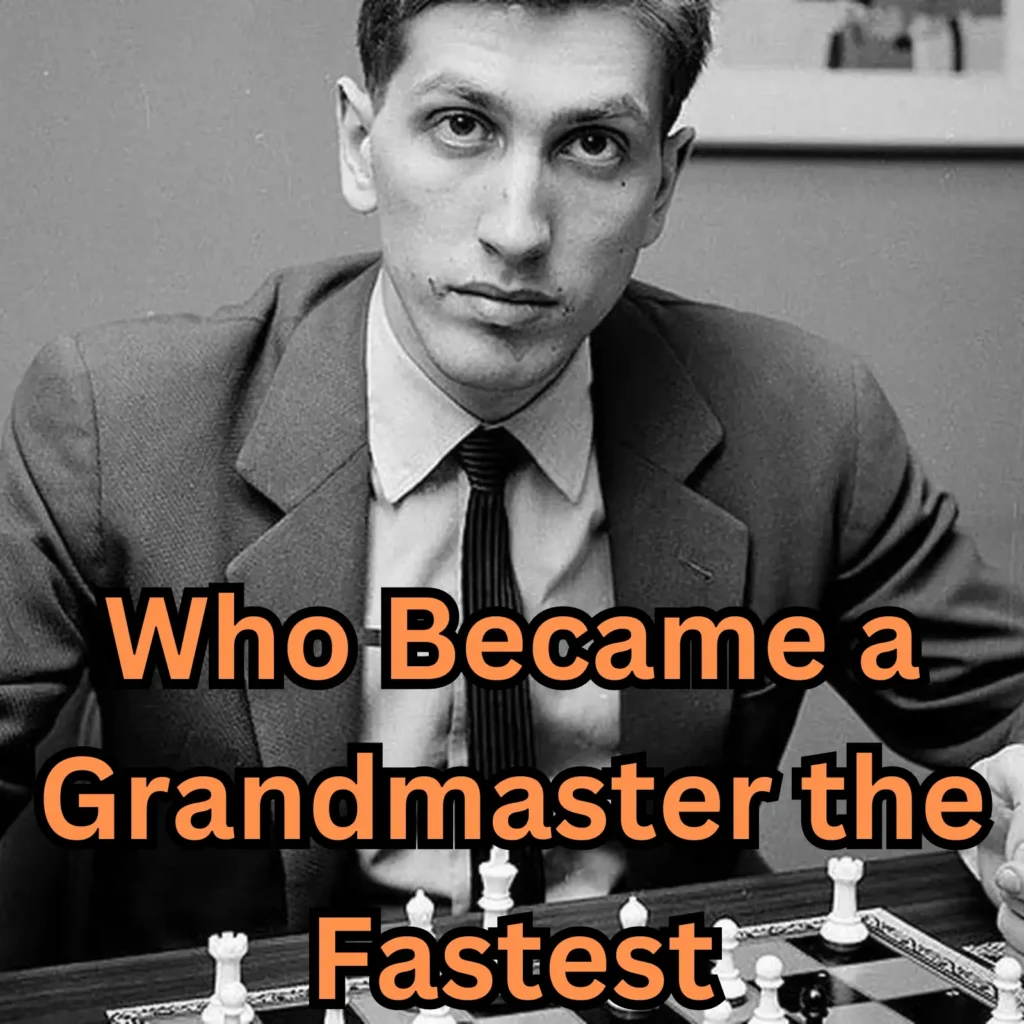
Introduction
We always love comparing players from different eras, we love discussing who the best players are all the time. One of the most common questions and discussions online are who became a Grandmaster the fastest, some people believe that the answer to this question can tell us who the best player of all time is.
In this article we’re going to try and mix that with who the best player ever is, most of the time both of these things go hand in hand, let see!
Garry Kasparov
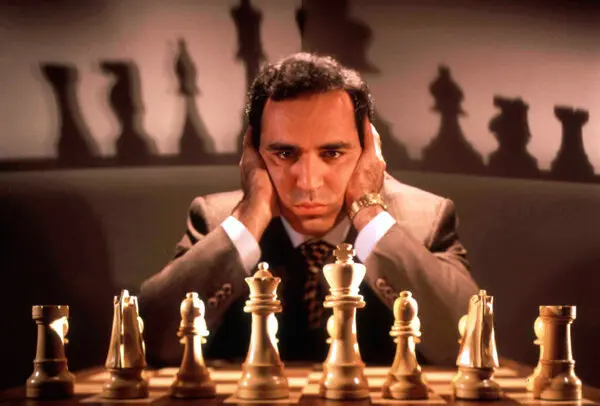
Garry Kasparov is a name that needs no introduction. Born in Baku, Azerbaijan, on April 13, 1963, Kasparov began playing chess at the age of six and quickly showed an exceptional talent for the game.
At the tender age of 15, Kasparov was officially recognized as the best player in the Soviet Union, he won multiple tournaments starting at age 13, by all accounts he was a master then.
But he said that at 15 years he really felt he had a great chance to become the best player in the world and was capable of winning the world championship.
Kasparov’s dominance in the game of chess during the late 1980s and 1990s was unparalleled. His aggressive playing style and innovative opening moves earned him a reputation as a fierce competitor who was always looking to win.
Kasparov still holds the record for the longest time as the number 1 ranked player in the world, from 1984 to 2005 (21 years).
In 1997 he went up against the strongest chess computer at the time in a six-game chess match. The IBM supercomputer program Deep Blue. This match was an important turning point in modern chess, millions of people tuned in to see who would win the strongest player of his era or a computer?
History was made when after 5 games, Kasparov was defeated thanks to making a crucial error. This was the first time a computer was able to beat a chess grandmaster, but nowadays any cellphone can beat any GM!
Legacy
Not only was Kasparov a great chess player, he also dedicated a lot of his time to writing about chess in books like “My Great Predecessors” and “How Life Imitates Chess”.
Kasparov has also been involved in politics, his rivalry with Karpov was evidently more than a chess rivalry, Karpov represented the Soviet establishment while Kasparov was seen more of a rebel and someone who wanted to go in a different direction. He has been a vocal advocate for chess in education and is credited with increased the sports reputation in academic circles.
Despite retiring from professional chess in 2005, Kasparov’s legacy as one of the greatest chess players of all time lives on. His influence on the game and his contributions to its development have earned him a place in chess history, and his name is sure to be remembered for generations to come.
Magnus Carlsen
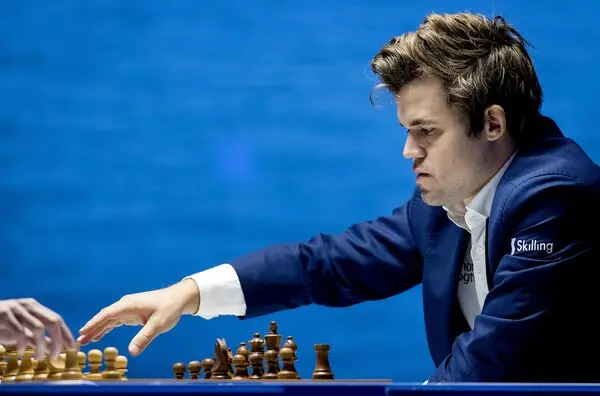
Magnus Carlsen is the modern prince of chess, he was born in Norway in 1990 and was always seen as the next big thing in chess, and he delivered, big time.
By the time Carlsen was a teenager he was already considered a chess prodigy, he achieved the rank of grandmaster at just 12 years old after drawing against Kasparov and beating Karpov. In 2008 at just 18 years old he was ranked as number 1 in the world and he held this ranking for 2 years, ever since then many people have constantly called him the best player in the world even today.
It was obvious that Carlsen wanted to become world champion and he finally did it in 2013, defeating defending champion Viswanathan Anand. But he didn’t just stop there, he successfully defended his title in 2014, 2016, 2018 and finally again in 2021.
Early on in his career he played a very aggressive game looking always to win, but he developed in one of the most complete players of all time, with many openly saying that he has no weakness.
Legacy
Nowadays Carlsen’s playing style is characterized by his versatility and creativity. He is known for his ability to play a wide range of positions and for his unorthodox openings, which often catch his opponents off guard. He has also been praised for his endgame skills, which are considered some of the best in the world.
If you had any doubts about Carlsen’s abilities then take a look at what the newest artificial intelligence analysis has to say: The Toulouse Computer Science Research Institute, which compares chess grandmaster moves against that of Stockfish—a chess engine that outperforms all human opponents—rated Carlsen as the best player of all time as he had the highest probability among all World Chess Champions to play the moves which Stockfish suggested.
Bobby Fischer
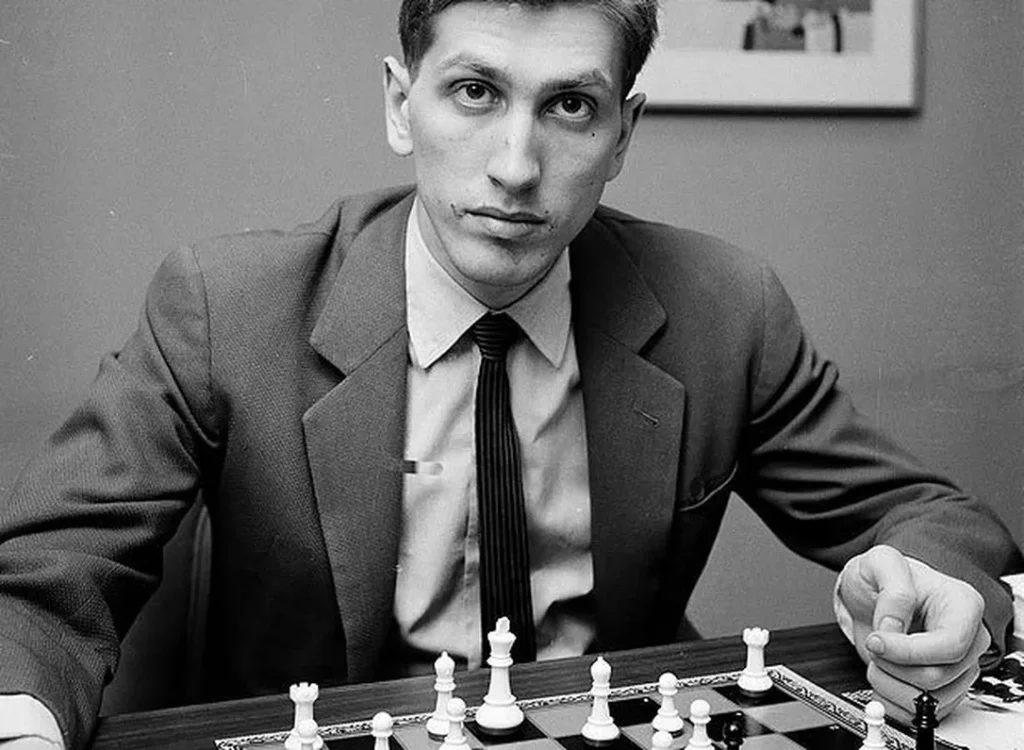
Bobby Fischer is an iconic figure in chess, and the only American on this list. Born in Chicago in 1943 Fischer showed immense talent as soon as he touched a chess board.
Fischer and her sister Joan learnt how to play chess by following then instructions from a set bought at a candy store, both kids were raised by their mom while their dad didn’t raise them directly and only made financial contributions to the family.
At first her mother was worried that Fischer spent too much time alone playing chess but soon she saw his talent and tried to nurture it. On one occasion his mother took Fischer to an exhibition match against Max Pavey a former Scottish champion. Fischer held on for 15 minutes but eventually lost to the master.
An American chess expert witnessed this and started teaching Fischer, Fischer said that while Mr. Carmine Nigro wasn’t the strongest player he faced his teachings were excellent and helped to turn him into the player he was then.
By age 14, Fischer had already won a record 8 US chess championships and in 1972 he won the World Championship against Boris Spassky in a convincing fashion.
Fischer’s playing style was characterized by his aggressive and uncompromising approach to the game. He was known for his innovative openings and his ability to outplay his opponents in complicated positions. He was also a master of the endgame, which he often used to secure victories in seemingly hopeless situations.
Legacy
Off the board, Fischer was known for his eccentricities and his controversial views. He became increasingly reclusive in the years following his world championship victory, and he withdrew from competitive chess altogether in 1975. In 1992, he made a comeback and played a rematch against Spassky in Yugoslavia, a move that resulted in him being indicted by the United States government for violating sanctions against the country.
Despite his reign at the top being shorter than the other players on this list, if you start digging into the history of the game and the context of all his wins, the dominating performances from Fischer and his unrelenting confidence tell you that this player was special and with a bit more luck he would have won multiple World Championships comfortably.
Jose Capablanca
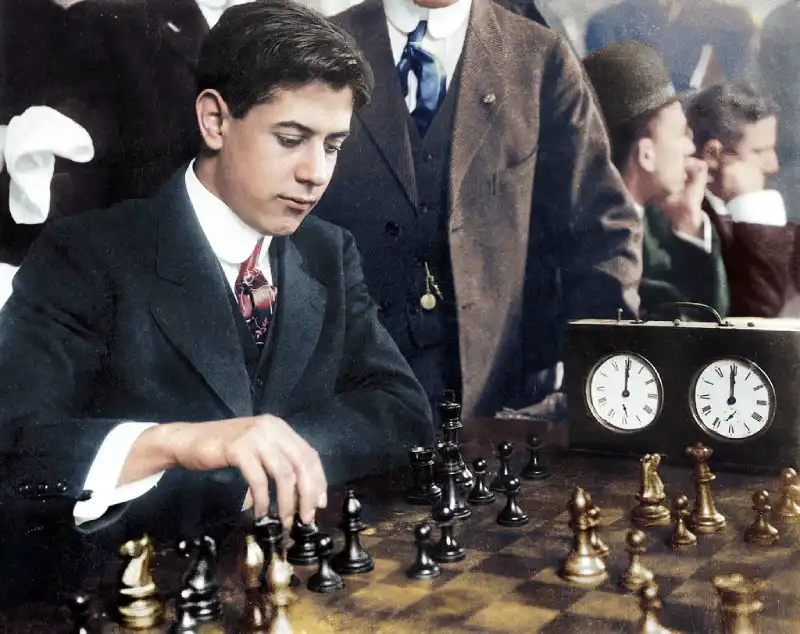
Capablanca was notable for accomplishing much of the same feats as the other players on this list but at a time when chess was an entirely different sport. Back then the World Championship was a different beast and as such it’s difficult to compare across eras.
Capablanca was Born on November 19, 1888, in Havana. He began playing chess at an early age and quickly showed a natural talent for the game. In 1901, at the age of 12, he won the Cuban Championship, and by 1907, he had become the Cuban national champion. At this time, he was already considered the strongest player in his country and a master-level player at the age of 13.
In 1921, he finally won his first World Champion title against Emmanuel Lasker in one of the most famous chess matches of all time. From the period starting from February 1916 to March 1924 he was undefeated, this included his World Championship match versus Lasker.
He finally lost the title when facing Alexander Alekhine in 1927 in what was considered an upset at the time. After this, Capablanca’s career declined and he never got to the same level as before.
Legacy
Some say that it was because he didn’t enjoy the game as much. Other say his health was never the same after he started suffering from high blood pressure, but no matter what his domination of the entire world of chess for almost 10 years was an amazing feat at the time, and it almost looked effortless for him!
Conclusion
It’s not enough to just see who became a grandmaster the fastest, but when we add it to the list of achievements from the players listed here, then we can make a good guess.
So, who is the best player ever? Is it Kasparov? Or Carlsen? The reality is that it’s too difficult to tell, most of the time circumstances change, for example Capablanca might have become a much stronger player in the modern era with computer analysis, also his health would probably be managed better, on the other hand, Fischer famously suffered from severe psychological problems and his career was cut short.
All of these things can muddy the waters but we hope you rest easy knowing that any of these players could easily be considered the best players of all time if you asked most chess fans today.